1. Right after the liberation of Saigon, I was assigned by the Central Organizing Committee to participate in press work in Saigon and was invited by Tin Sang Newspaper to collaborate as a non-permanent advisor.
Journalist Ly Qui Chung, former Minister of Information during the time when Duong Van Minh was editor-in-chief. I often talked with Ly Qui Chung, he often told me about the days of struggle of the opposition congressmen, he told me about the last days before the G-hour of liberating Saigon and one time Ly Qui Chung took me to visit General Duong Van Minh at the Hoa Lan villa on Vo Van Tan street (at that time Tran Quy Cap street). Although Ly Qui Chung introduced him first, he was still reserved. After a long exchange of words, he looked at me and slowly said:
I told you this (he was still used to using French - toa ( toi ): you, moa ( Moi ): me), you can write it down in your notebook. If I didn't care about this nation, didn't love my compatriots, didn't want Saigon to shed blood, I wouldn't have accepted to be President. What was the point of accepting when I knew the liberation army was close to Saigon? If I wanted to fight, I wouldn't have urgently requested the US to withdraw the US Military Attaché Office (DAO) from Vietnam within 24 hours.
I agreed to let Nguyen Dinh Dau's group, then Tran Ngoc Lieng's group, enter Davis camp to inform the liberation army that my army would not resist, I was waiting for the Viet Cong to come in, and whatever the National Liberation Front said, I would do.
I didn't know anything about the April 26th declaration of the National Liberation Front, I only knew that it was a declaration of peace , so I immediately declared "to implement the April 26th declaration of the Revolutionary Government of the South". That's why I invited the entire cabinet to the Independence Palace to wait for the revolution to hand over, after all, handing over is just a polite way of surrendering".
President Duong Van Minh and the entire Saigon government cabinet
PHOTO: VNA
During these days, I once went with Van Trang and Thien Giang, writers and revolutionary intellectuals in Saigon, to have dinner with historian Nguyen Dinh Dau at his home on the corner of Nguyen Du and Thu Khoa Huan streets.
Dining with us was Mr. Nguyen Van Diep, former Minister of Economy under Duong Van Minh, who was a foundation of the revolution. Mr. Diep said that Mr. Dau was the person sent by the Duong Van Minh government to Davis camp to meet with representatives of the Provisional Revolutionary Government of the Republic of South Vietnam.
Mr. Nguyen Dinh Dau smiled and said: "The situation at that time was very urgent, the Liberation Army was approaching Saigon. The Tri Viet group (the short name for the Saigon intellectual force with a progressive tendency, loving peace, supporting the National Liberation Front of South Vietnam) discussed that if there was no solution, Saigon would be destroyed by bombs and bullets of war and a bloodbath.
I am not a Viet Cong, nor am I a government official, I have no position, even the title of professor they gave me is wrong, however everyone knows that I was an intellectual who helped Uncle Ho's government at the beginning of the resistance war in 1945, so the group sent me to meet General Duong Van Minh to find a way.
Mr. Duong Van Minh read the surrender statement at Saigon Radio Station.
PHOTO: PHAM KY NHAN
I went to see Mr. Nguyen Van Huyen. Mr. Huyen told me: Mr. Duong Van Minh assigned me to be the Vice President in charge of peace negotiations, but now I don't know who to negotiate with to make peace. Mr. Huyen also said: Mr. Duong Van Minh and we accepted this Government because we were afraid of war, which would cause bloodshed.
Mr. Minh said: Whatever we do, we must find a solution so that our people do not die. Mr. Huyen agreed to assign me, Mr. Nguyen Van Diep, Mr. Nguyen Van Hanh and Mr. To Van Cang to go to Davis camp to meet with representatives of the revolutionary government (later I learned that Mr. Hanh was the base, Mr. Cang was the intelligence force of the revolution).
That meeting did not resolve the request as Mr. Minh and Mr. Huyen wanted, but the best thing was that we informed the revolutionary government that the Saigon government was ready to hand over and stop fighting so that the Liberation Army could plan to advance quickly."
When Mr. Dau and Mr. Diep returned from Davis camp to report the opinion of the National Liberation Front delegation that it was too late, nothing could stop the advance of the Liberation Army. The National Liberation Front asked the Saigon government to accept the April 26, 1975 declaration of the Provisional Revolutionary Government of the Republic of South Vietnam.
Mr. Dau continued: "At 9:00 a.m. on April 30, I talked with President Duong Van Minh at the Prime Minister's office - No. 7 Thong Nhat Street (now Le Duan Street). After hearing me recount the meeting at Davis Camp, Mr. Duong Van Minh agreed to make a statement for peace. He called the radio station to ask for preparations to broadcast the President's important statement."
* * *
2. The information from 1975, 1976 about Duong Van Minh remained dormant in my document notebook for many years. A question always troubled me: "What kind of person is Duong Van Minh?". One day in 1993, Prime Minister Vo Van Kiet visited lawyer Nguyen Huu Tho. In the story, the Prime Minister asked lawyer Nguyen Huu Tho:
- How does Mr. Ba evaluate Mr. Duong Van Minh?
- I think he is a person who knows how to serve the nation - lawyer Nguyen Huu Tho replied.
The opinions of the two leaders revived my concerns.
The tank column rushed through the main gate and entered the Independence Palace yard on the morning of April 30. Captain Bui Quang Than got out of vehicle 843, took the flag from his vehicle and hung it on the flagpole on the roof of the Independence Palace at 11:30.
PHOTO: VNA
In their conversation with me, Nguyen Van Diep and Ly Qui Chung, two former ministers in Duong Van Minh's cabinet, also told a story that needs to be recorded: On the morning of April 30, a special event happened before the G hour of the revolution, which was when the old French general Vanuxem flew from Paris, without prior appointment, to the Prime Minister's palace to meet Duong Van Minh. Ly Qui Chung was the first person to receive and take Vanuxem to meet Duong Van Minh.
Vanuxem: "I just arrived from France, waiting for you at the Independence Palace. I heard you were here so I came. Ask how the situation is now."
Duong Van Minh replied: The situation is hopeless. To avoid unnecessary bloodshed, I am about to broadcast a statement handing over to the Provisional Revolutionary Government.
Vanuxem said: It's not hopeless. I've made arrangements in Paris. I suggest you ask China to sponsor you...
Duong Van Minh: I have no contact with China.
At that moment, Vanuxem suggested that Duong Van Minh go on the radio and declare: We need foreign help because "Hanoi violated the Paris Agreement". Vanuxem committed that within 24 hours there would be strong support from foreign troops and made it clear that Chinese troops would pour into the South, the situation would be saved.
Duong Van Minh immediately replied after listening: "Thank you, our country is about to end the war. Please leave this matter to us Vietnamese to resolve." After saying that, General Minh shook hands: "Thank you" and escorted Vanuxem to the door so he could prepare to read the President's statement asking the Republic soldiers to stop shooting and prepare to hand over power.
Ly Qui Chung said it was a historic decision. Mr. Minh wanted nothing more than to end the war and hand over power to the revolution. Ly Qui Chung added: "If at that moment Duong Van Minh had only nodded to Vanuxen, or shouted a few slogans, or silently protected Saigon, then Saigon would certainly have been destroyed and there would have been bloodshed."
President Duong Van Minh and his cabinet appeared on the radio to announce unconditional surrender, ending the war in Vietnam.
PHOTO: VNA
Mr. Nguyen Dinh Dau gave me a document confirming several things about that historic moment of Vice President Nguyen Van Huyen, the full text is as follows:
1. I think the Duong Van Minh government was established not to confront but to reconcile the nation (in the spirit of the Paris Agreement), so I accepted to participate in the role of "Vice President in charge of peace negotiations".
Early in the morning of April 29, 1975, Mr. Nguyen Dinh Dau met me and asked if I had made contact with the other side. I immediately asked him to go to Davis camp, if possible, to find a way to cease fire, then I went to report the incident to Mr. Duong Van Minh (Mr. Nguyen Dinh Dau was just a fellow religious practitioner with me, not my political colleague, as some foreign news reported).
At nearly 5 p.m., Mr. Nguyen Dinh Dau came to hand me a draft of the "Declaration of Acceptance of the Ceasefire Conditions of the National Liberation Front of South Vietnam" drafted by Mr. Nguyen Van Diep and Mr. Nguyen Dinh Dau after returning from Davis Camp. I immediately brought the draft to Mr. Duong Van Minh for approval and then to the radio station to record and broadcast.
At around 7 pm, I went with Mr. Nguyen Dinh Dau to meet Mr. Duong Van Minh to suggest some more initiatives on the military side to stop the gunfire, because politically I had done my best.
2. Early in the morning of April 30, 1975, I did not meet Mr. Nguyen Huu Hanh with Mr. Duong Van Minh, but Mr. Duong Van Minh invited me to the Prime Minister's Palace to work. Before leaving, an officer reported to me about the war situation around the city, the liberation army was near. On the way, I told Mr. Nguyen Dinh Dau privately that the only solution left was surrender. When I arrived at the Prime Minister's Palace, I was ready to agree with the content of Mr. Duong Van Minh's "declaration of transfer of power". After that, Mr. Nguyen Dinh Dau said goodbye to me and agreed to go find Mr. Nguyen Van Diep and Mr. To Van Cang to help us in the initial contact with the revolutionary government.
3. Mr. Duong Van Minh received Vanuxem very briefly in front of Mr. Vu Van Mau and me. I said nothing. As if they had agreed, Mr. Duong Van Minh resolutely refused Venuxem's delaying tactic.
4. I breathed a sigh of relief when the liberation army entered Saigon and the Independence Palace. As for me, I did not know what the future would hold, but out of a sense of responsibility, after being injected and taking medicine, I returned from the hospital to the Independence Palace."
* * *
3. Professor Ly Chanh Trung once told me that in 1945, Mr. Duong Van Minh joined the resistance for a while and that he had a younger brother who was an officer in the revolutionary army.
Later, when helping President Nguyen Huu Tho edit the work " Chung mot bong co " (printed by the National Political Publishing House ), I read Professor Ly Chanh Trung's account of this period as follows:
Once I asked General Minh:
- Why didn't the general join the resistance in 1945?
General Minh replied:
- Yes, but I couldn't keep up. At that time, I was a lieutenant in the French military. When the resistance war broke out, they also let me work in the military, but when the French occupied Saigon, the military retreated to My Tho. When they retreated into the jungle, they didn't tell me, and by morning the French had taken over the citadel. I rode my bicycle to look for them, but the French had already blocked all the checkpoints. I was intercepted by an old friend and imprisoned at the Catina police station. I was imprisoned for a few months, then surrendered and went back to work. At first, I didn't want to march, but later I couldn't keep it.
Saigon and the whole country were filled with flags and banners celebrating the victory.
PHOTO: VNA
When General Minh ran for President of Saigon in 1969, at a press conference, an American reporter said: "If you were to become president and request to bring President Ho Chi Minh's body to the South, what would you think?"
Mr. Minh replied: "For us, the dying person's last wishes are very sacred. If President Ho Chi Minh had such last wishes, then let's include them."
Once again, when the US bombed the North, I once told General Minh: "If I were a young man in the North and the US bombed like this, I would definitely have to join the army to fight against the US. Does the General think the same as me?"
Mr. Minh nodded in agreement.
Originally not interested in politics, why did Mr. Minh participate in politics? In my opinion, Mr. Minh considered himself part of the so-called "pro-communist nationalist" faction, which was very small at that time, because in 1945 most of them had joined the resistance. Therefore, Mr. Minh wanted to stand up and take on the historical role of that force.
I asked General Minh: Why did you accept the position of President of Saigon and then surrender? He replied: "I know that, but this is also a humanitarian issue. The less bloodshed, the better." In my opinion, when he accepted the position of President, General Minh had no illusions about a political solution.
Liberation Army soldiers entered the Independence Palace and planted the revolutionary flag.
PHOTO: VNA
In " Chung mot bong co " there are printed opinions of people involved in Duong Van Minh. I would like to quote them here:
* Tran Ngoc Lieng (Opposition member of parliament under Nguyen Van Thieu).
When Huong agreed to hand over power to Minh, I said to Minh: "The situation has changed, why do you still accept it now?" Minh gave two reasons why he decided like that:
One is, if Minh did not stand up, there might be a coup, and more people would die.
Second, the US told Thieu that after the Paris Agreement, if the Viet Cong attacked, the US would drop CBU bombs. Minh opposed that because CBU bombs were weapons of mass destruction and would kill civilians.
So Minh had to accept, even though he knew there was no cure.
* Ho Van Minh (Opposition member of parliament under Nguyen Van Thieu)
When Tran Van Huong had accepted to hand over power, after lunch, I asked General Minh: "According to you, General, the situation has come to this point, what else can be done?". General Minh pondered for a moment and then said: "Although the situation is dark, we still have to do politics, I think the other side also needs us."
* Ly Qui Chung (former Minister of Government Information Duong Van Minh)
In the Government, Minh had no one to lead the army, because Thieu had long ago eliminated his relatives in the military apparatus. There remained only political forces in the press and among the Saigon deputies who opposed Thieu's policies.
On the evening of April 27, 1975, Minh held an internal meeting of the "group" to divide the ministerial positions. At first, there was an opinion that Ho Ngoc Nhuan would be the Minister of Information, but after that, Lan and Ba discussed and suggested transferring the position to me. When they learned that Bui Tuong Huan would be the Minister of Defense, everyone objected, but Minh explained: "We didn't fight or anything."
On the morning of April 28, 1975, Minh agreed to let me reduce the anti-communist rhetoric on the radio and television. I wrote some slogans calling for peace and negotiation and gave them to Mau for approval. Minh agreed and let them be broadcast.
On April 29, 1975, Minh signed a decision to appoint Vu Van Mau as Prime Minister and me as Minister of Information.
First, Minh kept his promise to release political prisoners. Huynh Tan Mam was also released on this occasion. I brought Mam to the TV station to give a speech so that the people would feel secure and not panic because of Thieu's previous threats of "bloodbath". I spoke on the radio, with the general idea: the people should trust the government's determination to move towards reconciliation and harmony, no fighting, no bloodbath. General Duong Van Minh promised to release political prisoners, and that has been done. I introduced Huynh Tan Mam to give a speech to prove it.
My first job at the Ministry of Information was to decide to change the name of the "Ministry of Information Recall" to the Ministry of Information. I sent a telegram to four regions: From now on, the word "Viet Cong" must no longer be used in documents, but instead must be replaced by "National Front for the Liberation of South Vietnam", calling lawyer Nguyen Huu Tho as Chairman.
The Independence Palace marks many historical events, especially on April 30.
PHOTO: MAI THANH HAI
On April 29, 1975, on the way from home to Hoa Lan Palace, I clearly saw that the situation was chaotic. I told General Minh: "General, anything can happen in Saigon. Please transfer power to the revolution." Because he had no ambition, Minh readily agreed to accept my proposal.
We discussed that if we publicly announced "The Government is open" on the evening of April 29, it would create chaos, so we should keep it a secret and announce it on the morning of April 30.
On the morning of April 30, 1975, at the Independence Palace, Minh explained the situation and decided to transfer power to the revolutionary government. Huyen, Mau, and Huan did not object.
I called the radio station to bring up the machine. Minh stumbled the first time he read it, the second time someone pushed the door open, and the third time he got it right.
Mr. Nguyen Huu Hanh commented: "If there is only the President's declaration, I'm afraid that some people in the army will not follow it, so we need a daily order. I agree to draft a daily order for the army."
The draft statement for the President was written by Vu Van Mau. General Minh looked at it, gave it to Huyen, Mau reviewed it, and then showed it to a few people. The article had the sentence: "We sit here, waiting for you to come in to discuss." Someone contributed to the correction: "We sit here waiting for you to come in to hand over power"... Duong Van Minh sat down, corrected a few words, then walked across the room to read.
After Duong Van Minh's statement, Nguyen Huu Hanh, as Chief of the General Staff, issued the next order.
After reading the statement, General Minh said: "Everything is considered finished, whoever wants to go or stay is up to them". Nguyen Huu Chung had a brother who was the pilot of the Vietnam Merchant Ship, and asked Minh for permission to leave the port. Minh agreed and said: Whoever wants to go, go. Minh told me that I should go because I had many children, I refused. Minh asked each person. Huyen definitely did not go, and Mau said: "I will only go when the National Liberation Front comes in and lets me go". Bui Tuong Huan asked: "If I go back now to pick up my wife, will it be in time?" Huan's tragedy was that his family had all left and he did not know.
The Independence Palace is now a favorite destination for people during celebrations.
PHOTO: PHAM HUU
We, including some congressmen and the old cabinet, sat in Thieu's room waiting for the handover of power. I went out to the front and waited, moved by today's conclusion.
Radio statement by Duong Van Minh in the name of President of the Republic of Vietnam at 9:30 a.m. on April 30, 1975. Full text as follows:
" Our policy and guideline is national reconciliation and harmony to save the lives of our compatriots. I deeply believe in reconciliation among the Vietnamese people to avoid wasting the blood of the Vietnamese people. For that reason, I ask all of you, the soldiers of the Republic, to remain calm, stop shooting, and stay where you are. We also ask you, the soldiers of the Provisional Revolutionary Government of the Republic of South Vietnam, to stop shooting. We are here waiting to meet with the Provisional Revolutionary Government of the Republic of South Vietnam to discuss together the orderly handover of power, avoiding the needless bloodshed of our compatriots ."
* * *
5. In 2006, Mr. Vo Van Kiet - former member of the Politburo, former Prime Minister, Chairman of the Steering Council for the project to summarize the history of the Southern resistance war chaired a discussion on October 31 about the role of Duong Van Minh. Attending were historical witnesses, including Mr. Nguyen Dinh Dau, Mr. Nguyen Huu Hanh, Mr. Trieu Quoc Manh, Mr. Duong Van Ba, Mr. Huynh Tan Mam, Mr. Dinh Van De, Ms. Bui Thi Me, Ms. Tran Ngoc Lieng...
They recalled and stated what they knew and saw. These were the people involved, historical witnesses, among them were our intelligence forces, military forces, spies, and the revolutionary base within the Saigon government. That day, Mr. Vo Van Kiet said in his conclusion:
" Our greatest wish is to correctly evaluate the person as well as their career. Here we must find the truth. To evaluate Duong Van Minh, we must not only evaluate the ending, accepting surrender or not surrendering, handing over or being forced to surrender. Regarding this character, this person, we must not only evaluate at such a special time. The structure of Duong Van Minh's government was not arranged but natural, if Duong Van Minh naturally combined this final government, with Catholicism and Buddhism, it would be very good. In general, he is pro-peace, wanting to find a solution. Regarding Duong Van Minh, we must learn from the beginning, even after we have finished, the process of his life here, this city and after going to France. Only when we connect those things together, can we correctly evaluate Duong Van Minh.
I will mention a few facts: Regarding France, when Minh went to France, France probably also raised many issues such as obtaining French citizenship. Before leaving, Minh pledged not to do anything harmful to the country, and Minh kept that commitment. When I went to France, I also met the couple and before he left Saigon for France, I had a meal of porridge to see them off. This matter is very much related to family, process... Therefore, when we evaluate people, we must consider their comprehensive relationships.
The Central Military Commission monitors the developments of the Ho Chi Minh Campaign, April 1975.
PHOTO: VNA
Second, the situation cannot be reversed. Regarding the final campaign, regarding strategic thinking, the strategic determination is to completely liberate the South, we determined it resolutely. The faster the liberation, the better; liberation within 1975, not later than the dry season of 1975, that is the determination of the Party, there is no need to hesitate about this. Actually, at that time there was no more time for negotiation.
In such a situation, with such a balance of power, with America outside, and even with the "brothers", there were many things to talk about. But we definitely had to liberate, which meant that we almost accepted "liberating the South at any cost", even if there was a problem, even if we had to fight right in this city, which meant it could collapse. We had planned like that before, and planned to fight down in the plains. But we definitely did not let any problem cause the campaign to stall.
Because at that time, if we hesitated, or dragged on without ending soon, the US could resolve the conflict, and then there were these and other things, both outside and inside, very complicated, there was no other way, no negotiation, no discussion at that time. As it was a campaign, as it was a decisive battle, then there was only going forward, no retreat, no hesitation. That was the strategic thinking in the campaign. Until now, that is completely correct .
* * *
6. In the early 90s of the last century, I once went with Ly Qui Chung to No. 6 Phan Ke Binh, the private residence of General Nguyen Huu Hanh, to visit him. At that time, Mr. Hanh and I were both members of the Central Committee of the Vietnam Fatherland Front and Mr. Hanh was my deputy in an economic organization of the Central Committee of the Vietnam Fatherland Front. That day, I asked the two of them to recount a few details about the historic moment of April 30 at the Independence Palace in 1975.
Ly Qui Chung: On the morning of April 30, we were present in the reception room to wait for the Liberation Army according to General Minh's orders.
Nguyen Huu Hanh: It was almost 11 o'clock, I was anxiously going out the door when a Liberation Army tank crashed through the iron gate and entered the Palace. A man holding a gun and a flag ran quickly into the Palace and asked for directions to the roof to plant the flag. Later I learned that it was Bui Quang Than. Another Liberation Army soldier, with an AK in his hand, asked us all to go inside the room. Only about ten minutes later, from another tank, a man holding a pistol entered the room. I introduced myself to him:
- Sir, I am Brigadier General Nguyen Huu Hanh, military assistant to President Duong Van Minh. We are waiting for you. Then I introduced myself to him:
- Sir, this is President Duong Van Minh.
He shook hands with General Minh and introduced himself: "I am Captain Pham Xuan The, Deputy Commander of Regiment 66" and he said a few words about the revolution's lenient policy to General Minh.
Tank soldiers 843 noon April 30, 1975
PHOTO: VNA
Immediately after that, a tall man wearing a liberation army uniform entered. It was Lieutenant Colonel Bui Van Tung , Political Commissar of the Tank Brigade, Captain The's superior.
General Minh looked relieved and said to Mr. Tung:
- Sir, this is the entire cabinet, we are waiting for you to come to hand over power.
- No, you have nothing left to hand over. You must surrender. Bui Van Tung answered firmly.
Nguyen Huu Hanh told this story and Ly Qui Chung immediately interjected:
I also thought in my head that we would hand it over, but listening to Mr. Tung, we were a bit embarrassed and confused.
Then, under the orders of Lieutenant Colonel Bui Van Tung, the Liberation Army brought President Duong Van Minh and Prime Minister Vu Van Mau to the radio station to read the surrender statement.
The three of us talked about many things. Mr. Nguyen Huu Hanh slowly said: "There will be a surprise for you two." It turned out that Mr. Hanh had invited an honored guest, that was Bui Van Tung. How interesting.
Political Commissar Bui Van Tung and journalist B. Gallash at the Independence Palace at noon on April 30, 1975.
DOCUMENTS
I met Bui Van Tung for the first time, but we were all Uncle Ho's soldiers so we were very happy. Bui Van Tung was big and strong, looking at his rubber sandals, I remembered the day he reported his achievements to President Ton Duc Thang at the Independence Palace, he was still wearing these sandals, because his feet were too big so no shoes could fit, and so the rubber sandals became a miracle mentioned in the press.
After a while of exchanging words, I asked the three people:
- I ask you honestly, Mr. Tung was one of the first people to arrive at the Independence Palace, Mr. Ly Qui Chung was in the story, very close to Mr. Hanh. Did you have any premonition or indication that Brigadier General Nguyen Huu Hanh was a member of the revolutionary intelligence force?
Ly Qui Chung shook his head: How would I know?
- Bui Van Tung: Secrets are great sacrifices, but it is those secrets that create miracles.
Ly Qui Chung (at that time, the General Secretary of the Tin Sang Newspaper ) asked Mr. Tung: "Why don't you accept the handover like Bao Dai in 1945?" Mr. Tung laughed: "That's the order from the superiors, we must surrender, no negotiation of handover." Turning to me, Mr. Tung affirmed: "It's an order, I know it."
I understand, I remember that moment. On the morning of April 30, 1975, revolutionary troops from all sides approached Saigon. The main tank attack force advancing along Highway 1 also crossed the Dong Nai - Bien Hoa bridge. At 9:35 a.m. on April 30, 1975, immediately after hearing Duong Van Minh's announcement broadcast on Saigon Radio, the Ho Chi Minh Campaign Command issued an urgent order to the fronts and attack forces:
" All troops must attack hard, advance quickly, and capture the targets as prescribed. Join forces at the puppet Independence Palace. The enemy has nothing left to negotiate and hand over, they must surrender unconditionally. Advance! Total victory! "
President Ton Duc Thang and Party and State leaders on the podium
PHOTO: VNA
And before that, from the beginning of April, General Vo Nguyen Giap's order was sent out urgently to the entire Front: "Faster, faster, bolder, bolder, rush to the front to liberate the South, fight to the death and win completely".
The above order is immutable. Therefore, the Liberation Army entering the Independence Palace and telling Duong Van Minh "you have nothing left to hand over", "you must surrender" was the complete implementation of the order.
Ly Qui Chung asked again:
- I asked Mr. Tung this. That day when we were at the Palace, after asking us to surrender, you said: Now you are free, what does that mean?
Mr. Bui Van Tung looked at Ly Qui Chung, looked at Mr. Hanh and said:
- The principle of surrender is that people are prisoners of war and sometimes have to be placed under house arrest..., but you are not prisoners of war.
Returning to the old story, I asked Ly Qui Chung to tell a few details about the historical moment at the radio station at noon on April 30, 1975. Ly Qui Chung looked at Bui Van Tung and said:
- Mr. Hanh was staying at the Independence Palace with the entire cabinet. Mr. Tung asked me to go with him via radio. At that time, there was a foreign journalist present at the Independence Palace. Boerries Gallasch, a reporter for the Mirror newspaper of the Federal Republic of Germany, who was familiar with me, asked to go with me. I told Mr. Tung to let him go with me to report to the world. Moreover, sometimes his tape recorder was needed to record the statements.
Mr. Tung agreed. The Jeep carrying President Duong Van Minh, Prime Minister Vu Van Mau and Captain Pham Xuan The drove ahead. The car carrying Mr. Bui Van Tung started a little late because of the discussion about the German journalist accompanying him. Gallasch and I sat in the Jeep with Mr. Tung.
When I arrived at the radio station, I took Tung into the recording studio, where The was asking Duong Van Minh to write a statement of surrender. Seeing Tung enter, Captain The handed it over to Tung. Nguyen Huu Thai (Secretary General of the Student Association, the inner-city revolutionary force) and I stood next to him. We saw Tung writing on a piece of blue paper, writing and erasing, writing and rewriting a few lines, very impatient.
At 5:30 a.m. on April 30, the 10th Division and two tank companies of the 273rd Armored Regiment attacked Tan Son Nhat airport.
PHOTO: VNA
Mr. Tung raised his hand and interrupted: Writing short is difficult, and it is a historical declaration so it is even more difficult. Mr. Tung recounted that at that time, Duong Van Minh only wanted to write "I am General Duong Van Minh", not calling himself president. After I analyzed that the declaration had to be made president to have value, he agreed but did not want to call himself president.
In return, Mr. Minh agreed to use all of them. I also did not write "Republic of Vietnam Government" but called it "Saigon Government", "Republican Armed Forces" instead of the "Republic of Vietnam" army. I insisted on having the word "Unconditional" after the word surrender. That's the most difficult thing because of the urgent time I had to write and rewrite like that.
After finishing the surrender, Mr. Minh read it to get used to the words so that he wouldn't stumble when reading it on the radio. At that moment, an incident occurred: Because of the war, the station's staff abandoned the station and ran home to evacuate. Luckily, the German journalist who followed him had a cassette player. We used his to record it. After recording, Mr. Minh listened to it with us. I looked at Captain The to ask if he had any comments, and The nodded. I let him broadcast it.
After a moment of silence, Bui Van Tung continued: You know, after Duong Van Minh read the surrender statement, I, on behalf of our side, read the declaration of acceptance of surrender. Just a few sentences made me choke with emotion to the point of wanting to cry.
- Me too, Nguyen Huu Hanh added: after Duong Van Minh's statement, I read the order on behalf of the Chief of the General Staff, my whole body was shaking, emotions were surging, I could not believe that I was present at that historic moment.
Bui Van Tung added:
- Thinking back now, I still feel emotional. Think about how many of my comrades have died, millions of them, not just a few. So that moment was very sacred. The sentences I wrote, the words I read at that time seemed to have the sacred soul of the mountains and rivers, the spirit of my comrades...
As time passed, the past was revealed through increasingly exposed documents. A week before April 30, 1975, the US President declared in a press conference: "The surrender of the Saigon government is inevitable...". Henry Kissinger hoped that Duong Van Minh, as president, would negotiate with the revolutionary government to "hand over", in other words, to have an honorable surrender.
Helicopters fly over the Independence Palace to practice for the 50th anniversary of the country's reunification
PHOTO: MAI THANH HAI
Federal Republic of Germany journalist Borries Gallasch has written many articles and published books about this historical event. We would like to quote a passage from Borries Gallasch published in Tuoi Tre Newspaper :
…” We went into the small studio on the first floor. The technicians had taken Thieu’s portrait down from the wall and thrown it out the window into the yard. We sat motionless for a while. Mr. Mau fanned his face with a book. President Duong Van Minh and tank commissar Bui Van Tung sat on two chairs and I sat between them at a small table. Mr. Tung drafted the surrender document on a piece of blue paper.
…Commissar Tung had a hard time writing. He sat motionless as he composed a few words, then another, then another. After 30 years of fighting for a cause, it was hard to know what to write.
Meanwhile, everyone seemed to be relaxing and less excited than an hour ago. Captain Pham Xuan The, who had arrested Mr. Minh in the palace, still had a gun in his hand.
Finally everyone was ready, but none of them knew how to use a tape recorder. Political Commissar Tung gave me very clear instructions on what I had to do: Mr. Minh had to read the statement into my tape recorder, which was repeated three times. The first time Mr. Minh hesitated because he was asked to read: "I, Duong Van Minh, President of the Saigon government", but he only wanted to say: "I, General Duong Van Minh...".
They argued back and forth and finally came to an agreement: not to give in to Mr. Minh. Mr. Minh had to say: "I, General Duong Van Minh, President of the Saigon government". But Mr. Minh could not read the handwriting of Commissar Tung and misspoke many times. Everything had to be read again from the beginning. Finally it was done. Mr. Minh finished in the correct tone: ... South Vietnam".
* * *
7. The more we research and collect the story of General Duong Van Minh, the clearer it becomes that he is a man for the nation. Duong Van Minh himself is the result of the silent feats of internal bases, of intelligence soldiers who were in the Saigon government apparatus such as Vu Ngoc Nha, Ms. Sau Thao, Mr. Tu Cang, Trieu Quoc Manh, Nguyen Van Diep, Nguyen Huu Thai, the H63 spy network..., and Nguyen Huu Hanh.
They did not fight with guns and bullets but contributed greatly to the victory of the liberation of the South. Indeed, the impact of our secret forces on Duong Van Minh's thinking at that time was extremely timely and effective.
Once, I had a chance to talk with Mr. Pham Hung when he was still Deputy Prime Minister. Mr. Pham Hung said that mobilizing Duong Van Minh was a long and elaborate process for us. When the Ho Chi Minh Campaign began, as the Political Commissar of the Ho Chi Minh Campaign, he directed to immediately bring General Nguyen Huu Hanh, our spy (codename S7) who had been forced into early retirement by the Nguyen Van Thieu government and was in Tien Giang, back to Saigon to approach Duong Van Minh.
Nguyen Huu Hanh was a classmate of General Minh at the College de My Tho, and he, along with other secret forces, had the necessary and timely impact. Duong Van Minh took office as President and gave Nguyen Huu Hanh the command of the General Staff of the Saigon army. Thanks to that, the warlike minds of the 4th Corps and the Saigon Special Zone were neutralized. Thanks to that, the Saigon bridge was not destroyed, the city remained intact, and no blood was shed...
Nguyen Huu Hanh is one of the silent missionaries, a symbol of our intelligence and military force, of our internal base. They are the ones who contributed to creating a Duong Van Minh like that.
Independence Palace
PHOTO: MAI THANH HAI
A few days after the liberation of the South, General Tran Van Tra, Chairman of the Military Management Committee of Saigon - Gia Dinh City, organized a ceremony to return citizenship rights to Duong Van Minh and those in the Duong Van Minh government apparatus.
That day, General Duong Van Minh said: "Personally, today I am very happy to be 60 years old and become a citizen of an independent Vietnam" and "With this new era, I hope all of you present here, as well as all classes of compatriots, will have the opportunity to contribute to the cause of national construction".
Historian Nguyen Dinh Dau commented to me: Looking objectively from the perspective of a historian, one can see this: "It was not for nothing that Duong Van Minh accepted the presidency and accepted it when there was nothing left. I think there must have been a movement of revolutionary forces, and Mr. Minh was someone who was not pro-American, a nationalist and had feelings for the revolutionary side. He wanted Saigon not to fall into ruins, he did not want the scene of Saigon being defended to the death and then dying... that's why he accepted the presidency."
In the final days, Duong Van Minh's solution was to meet and negotiate for the handover. On the evening of April 29, he took his wife to the Independence Palace to sleep and waited for the National Liberation Front. And when the first revolutionary soldier entered the Palace, Duong Van Minh exclaimed: "You have returned, we are waiting for you to come to hand over...".
Once, on the occasion of the anniversary of the signing of the Paris Agreement on Vietnam, I accompanied Ms. Nguyen Thi Binh (former Vice President) to visit French friends who had helped us during the 5 years of the conference. On that occasion, I and Ms. Binh visited Mr. Duong Van Minh.
Ms. Binh said: "Our Party is truly great, arranging for Duong Van Minh to appear, although a bit late, but very necessary and contributing to the completeness of the day of total victory." She affirmed: "Duong Van Minh is a patriot."
During the first months of Duong Van Minh's arrival in Paris, reactionary forces often came to persuade him to become a flag against our government. Duong Van Minh resolutely refused. Duong Van Minh told us: "Even if I can't contribute anything, I will leave behind a beautiful love for my homeland."
Thanhnien.vn
Source: https://thanhnien.vn/duong-van-minh-va-nhung-ngay-cuoi-thang-41975-185250426233101912.htm


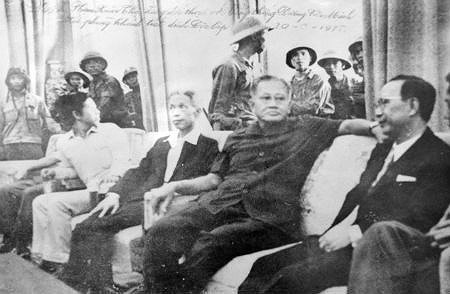
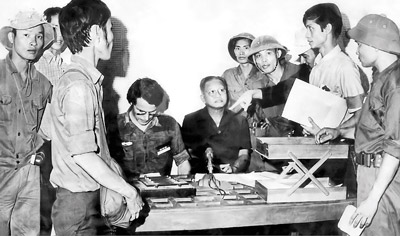
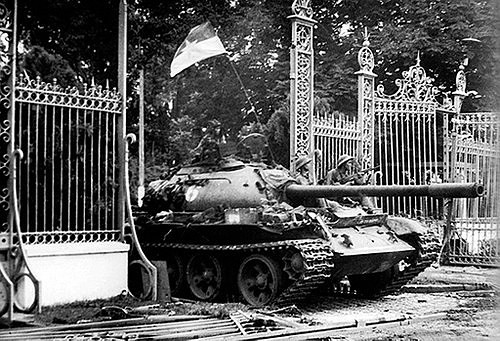
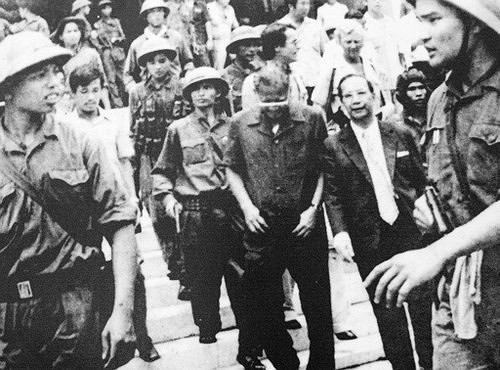
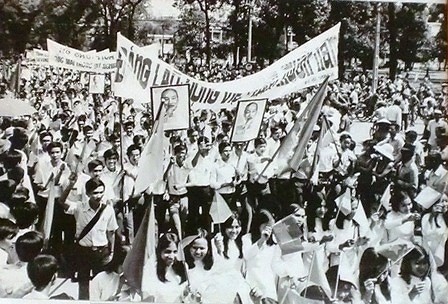
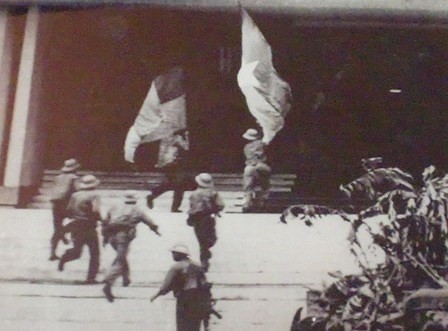
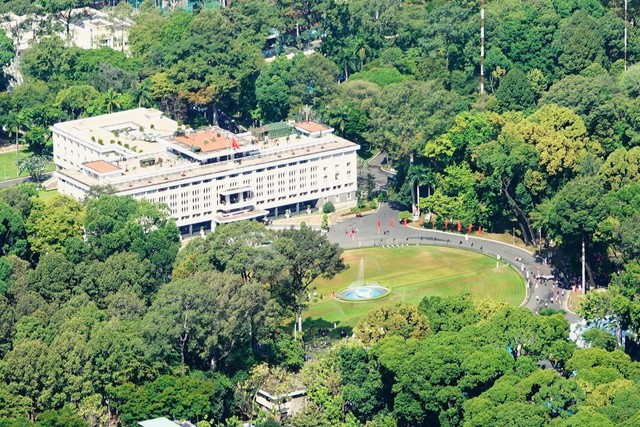
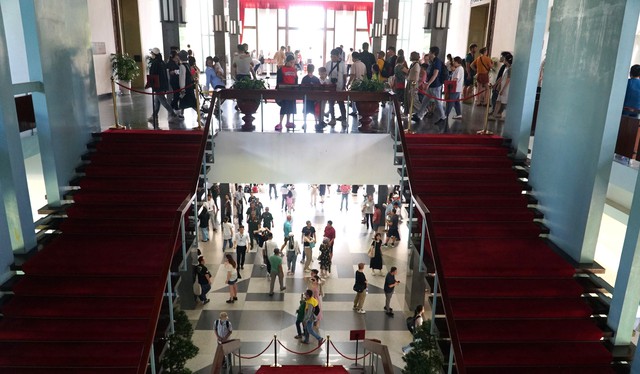
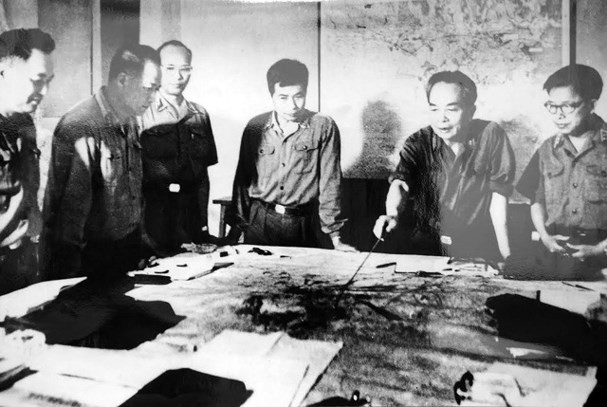
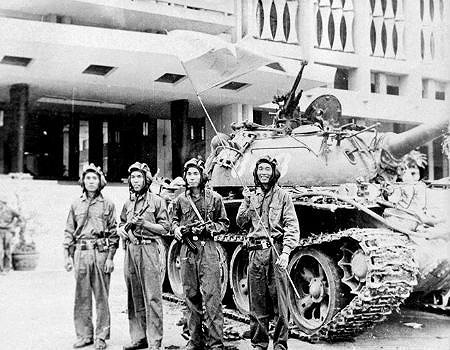
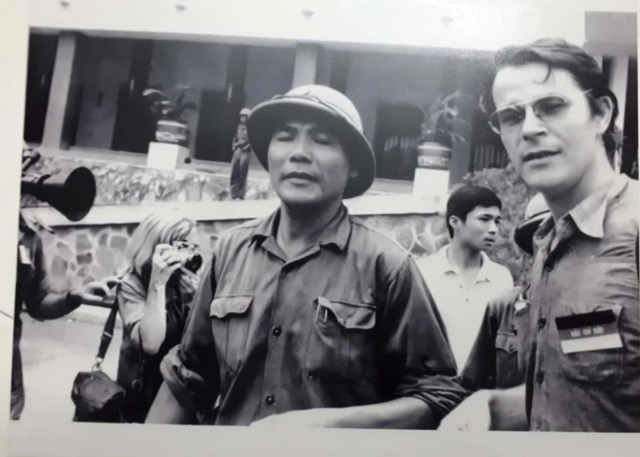
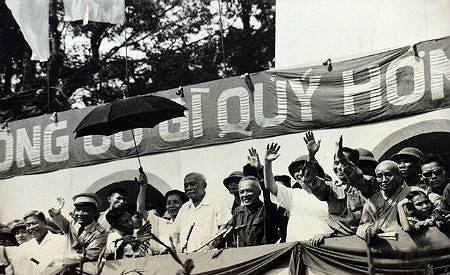
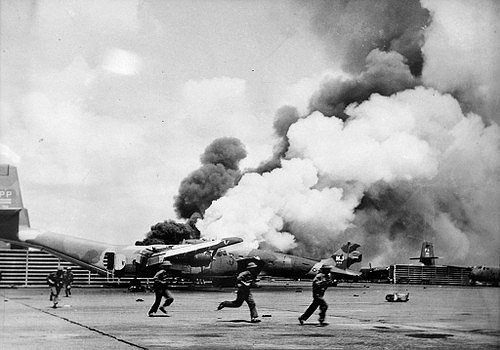
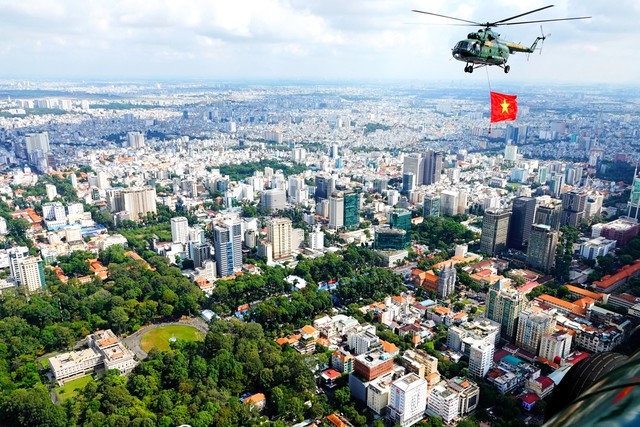
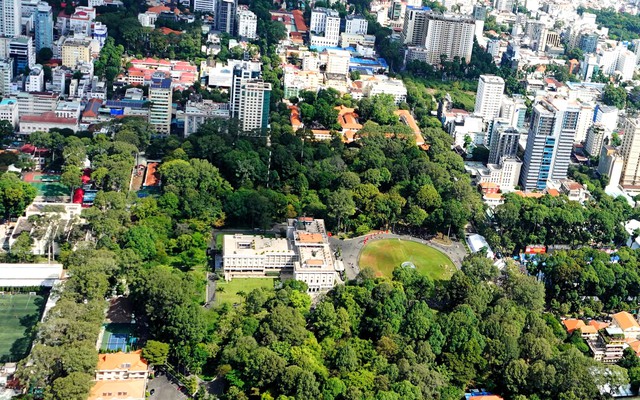






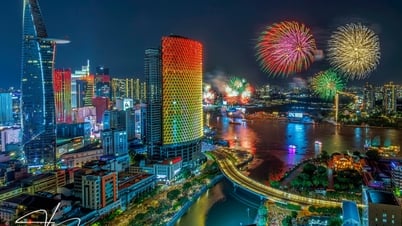

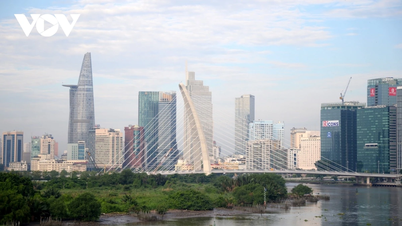

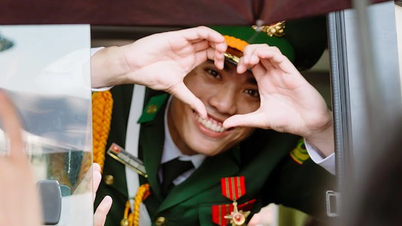

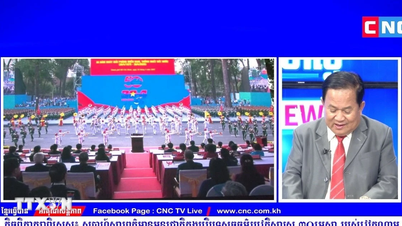

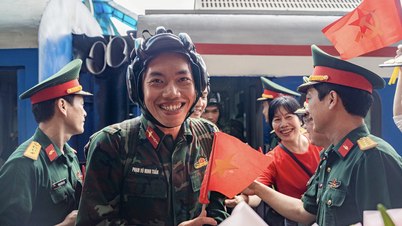

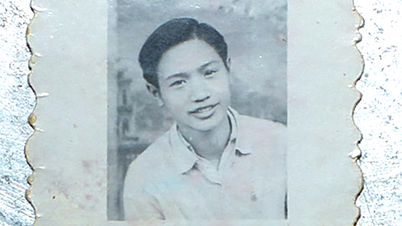
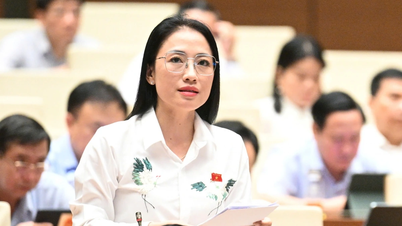
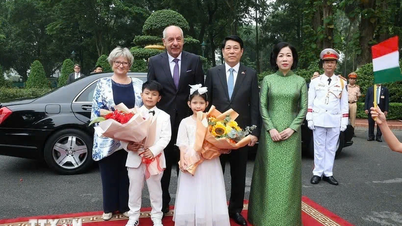
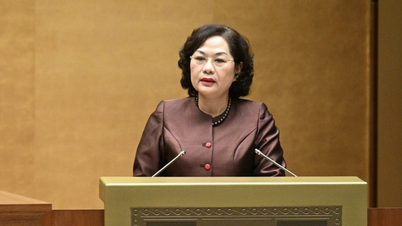

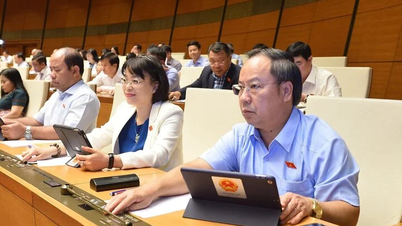
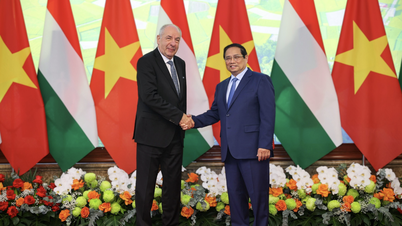
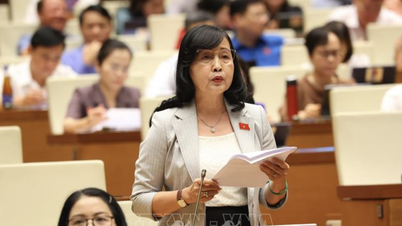






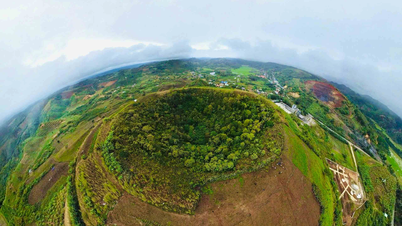
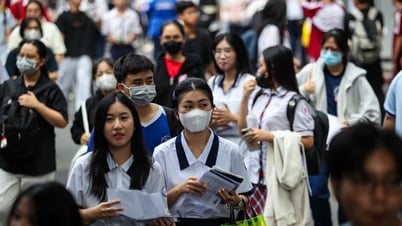
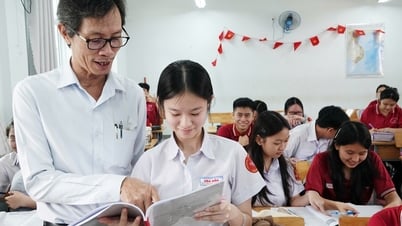
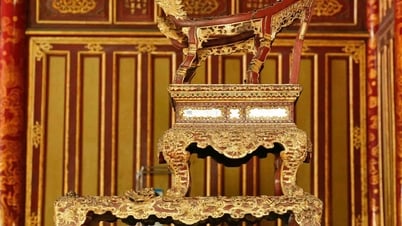
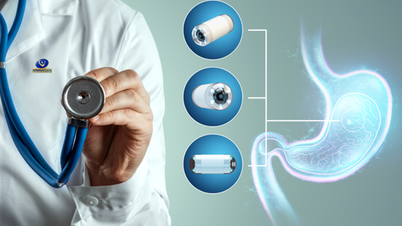



























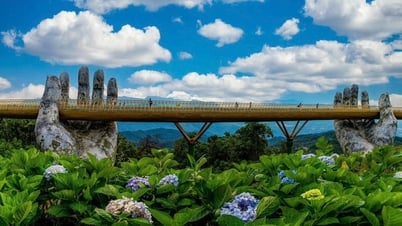
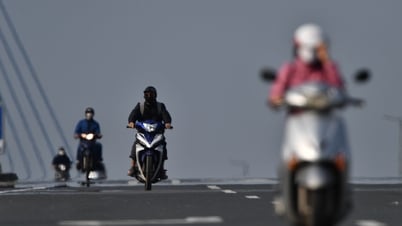
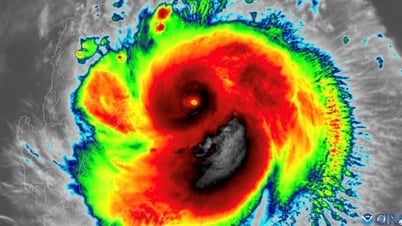

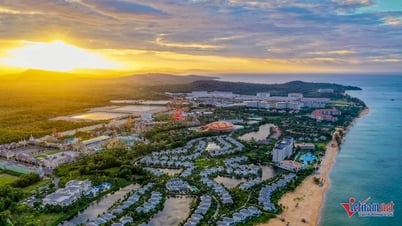
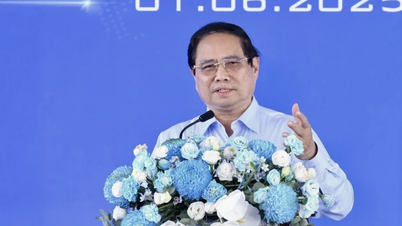
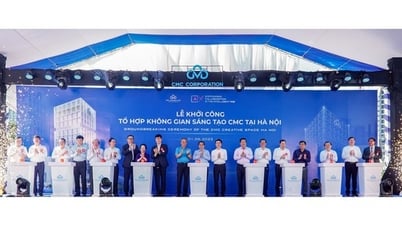

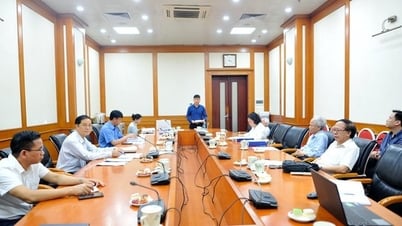






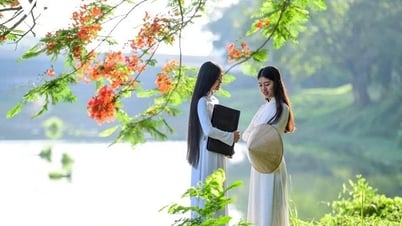

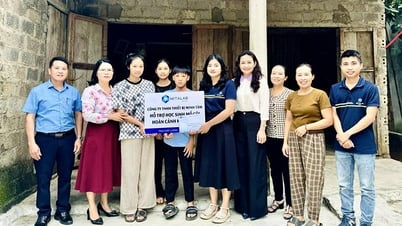
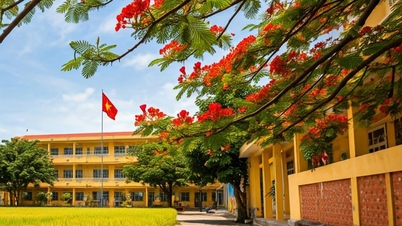


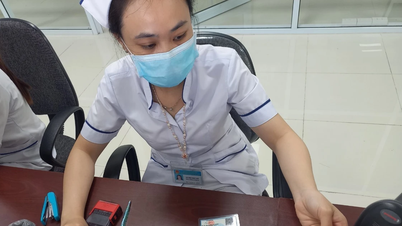

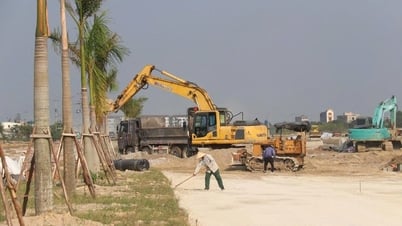









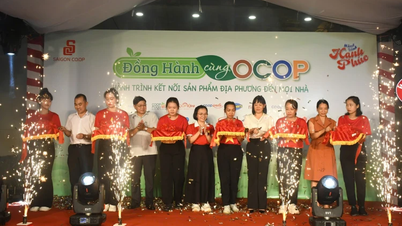



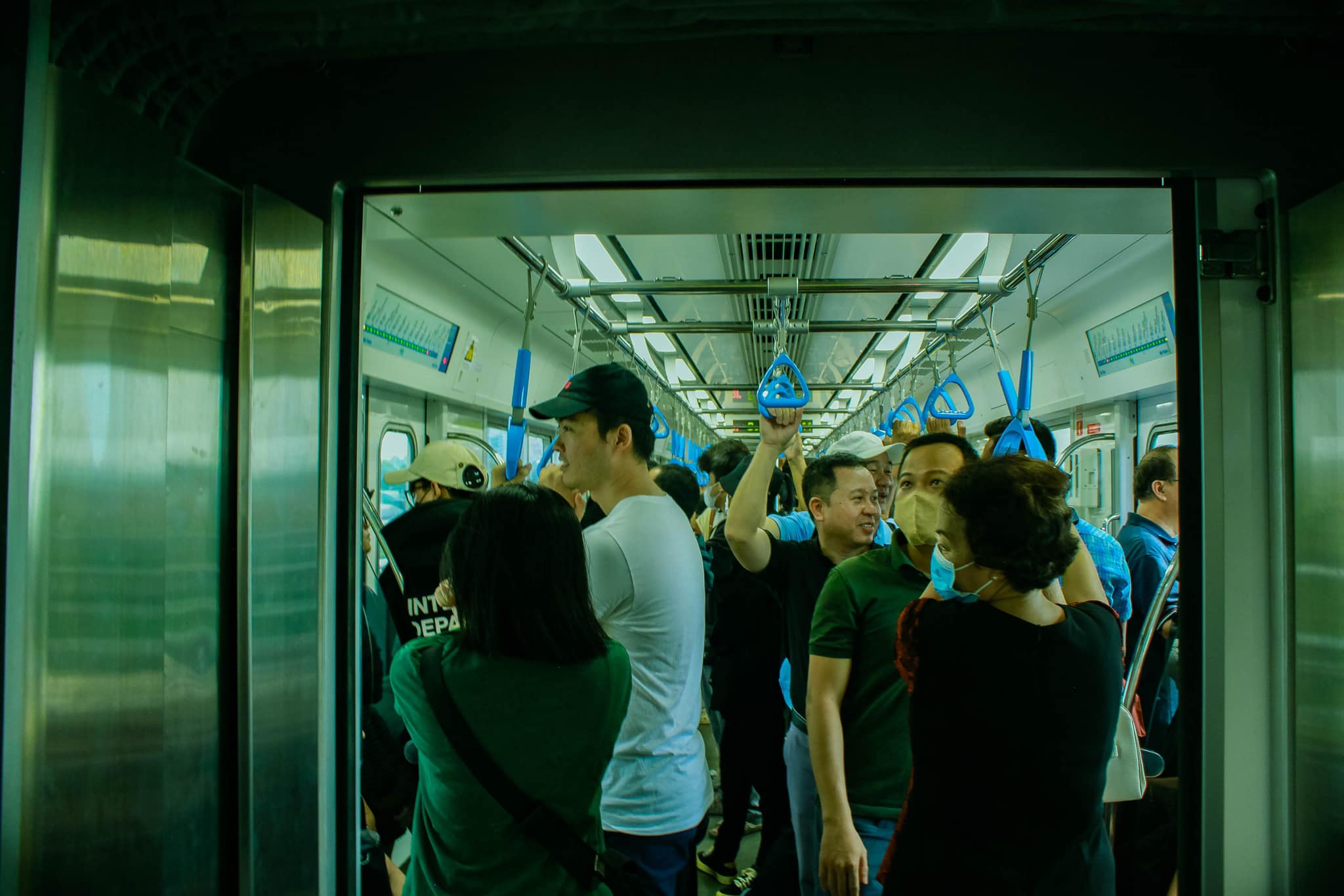



Comment (0)